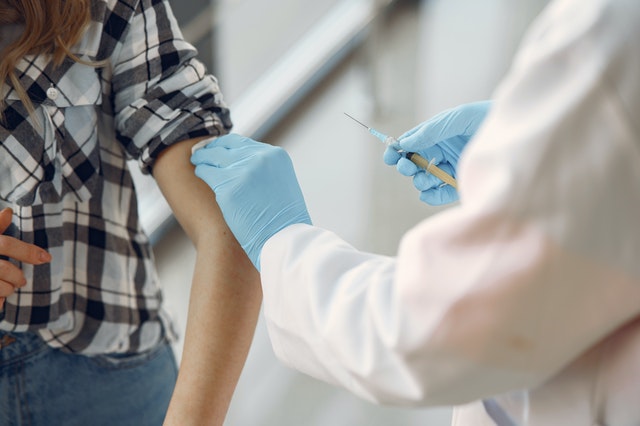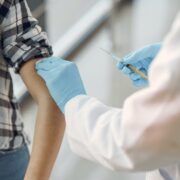
THE Pfizer vaccine was recently granted full approval by the United States Food and Drug Administration, but if you are among one-third of the American population with lingering questions about the safety of the vaccines before you decide to get the life-saving shots, then read on, especially when time is of the essence with the escalating threat of the Delta variant even among children.
Schools have reopened, and we all feel scared for our children’s safety, knowing our little ones are not yet vaccinated and may be infected by adults who refuse to be vaccinated and wear life-saving masks, just like what happened in an elementary school in Marin county.
On May 19, an unvaccinated teacher already started feeling the usual symptoms — fatigue, nasal congestion. As the Washington Post reported, she dismissed them as allergies and went to school. She would usually wear mask, however, she made an exception when she had to read a book aloud during storytime to her unsuspecting pupils.
“By the time she learned she was positive for the coronavirus two days later, half of her class of 24 had been infected — nearly all of them in the two rows closest to her desk”, the Post reported, and the outbreak spread exponentially to other classes, siblings and parents.
Just one short moment of not wearing a mask and the Delta variant came sneaking in like a thief in the night. The sad note on this is that this could have been avoided if she had been vaccinated, and if she kept her mask on knowing very well that the young kids in front of her in an enclosed environment have no protection against the virus unless they are eligible to get the Pfizer vaccine for children under the emergency use authorization.
According to the Academy of Pediatrics, children accounted for 22.4% of COVID-19 cases in the United States for the week ending August 26. As CBS News reported, the outbreak among children increased exponentially more than five-fold in just a month. Pediatric cases jumped from 38,000 the week ending July 22 to more than 200,000 the past week.
Our hospitals and health care workers are overwhelmed, and our heroes fighting on the front lines, many of whom are Filipino, have been urging people to be vaccinated to save themselves, their families especially the children. This is also crucial for patients who are critically ill but could not get the medical treatment they urgently need immediately because many hospitals are operating beyond capacity.
The light at the end of the tunnel: while worst new COVID cases came from states with the lowest vaccination rate, mostly from the South, CNN reported that the highest number of new vaccinations per capita, data published Thursday, September 2 by the U.S. Centers for Disease Control and Prevention shows.
The report cited Tennessee, which reported the country’s worst COVID-19 cases rate, had the sixth-best rate of new vaccinations per capita in the U.S. over the past week, and now about 42.1% of residents are fully vaccinated.
In Alabama, the report stated that on Thursday, “the state reported a 22% positivity rate and categorized every single one of its counties at a “high” level of community transmission. More than 3,000 people were hospitalized with the virus across the state, according to data from the US Department of Health and Human Services. With the state health department’s new COVID-19 vaccine campaign, roughly 38.6% of Alabama residents are fully vaccinated.
The same trend is seen in other states in the South which were among the most vaccine and mask resistant states in the nation. The CNN report stated other states that are reporting some of the country’s worst-case rates but high numbers of new vaccinations include Florida, Georgia, Kentucky, Mississippi, and South Carolina.
This development is a game-changer in the mission to save lives. States with higher vaccination rates report lower hospitalization and death rates. And even in breakthrough cases where the fully vaccinated get infected, 99.9% of the patients do not experience life-threatening symptoms and eventually recover without having to go to ICU unless there are underlying medical conditions in addition to the COVID infection.
Nationally, CNN reports an optimistic development:
COVID-19 hospitalizations in the US have been rising steadily since early July, but are starting to show signs of improvement, HHS data shows.
Total hospitalizations nearly tripled in July and doubled again in August, according to HHS data, and for the past eight Sundays, total hospitalizations were an average of 25% higher than the week before.
But over the past seven days, total hospitalizations in the U.S. grew by only 2%. In fact, there were 134 fewer new admissions during the week of August 24 than there were during the previous week.
Our health officials and scientists say that we have a greater chance of getting the virus under control and eventually defeat it when we attain herd immunity. It is important that we vaccinate as many Americans as possible to achieve this.
Vaccines work and are safe. As CBS News reported:
Full approval requires long-term evidence that Covid-19 vaccines are safe and effective
For vaccines, the FDA grants emergency use authorizations after it reviews at least two months of follow-up results for clinical trial participants who received the actual injection. For full approval, known in FDA-speak as a “biologics license application,” the agency wants to see six months of data to ensure there are no widespread problems or to detect adverse reactions. Both reviews examine safety and efficacy while also studying what the optimal distribution strategy might be.
In May, Pfizer and BioNTech submitted their license application. Moderna began its application in June, and Johnson & Johnson said it will begin the process later this year.
With vaccines in general, almost all complications that occur tend to happen shortly after the vaccine is administered, often within a day or two. Most side effects of the Covid-19 vaccines in the US tend to be mild or moderate, ranging from pain at the injection site to fatigue to fever. A very small number of recipients reported severe allergic reactions shortly after their shots, which is why most vaccine clinics have a waiting period where they can monitor patients for 15 to 30 minutes.
But in clinical trials, some extremely rare complications can be hard to detect even among tens of thousands of people after following them for two months. In April, the CDC and FDA paused the distribution of the Johnson & Johnson Covid-19 vaccine after 15 people reported a rare blood-clotting disorder out of the 8 million people who had received a dose at that point. After investigating, regulators concluded the benefits of the vaccine far outweigh the risks and allowed distribution to resume.
Monitoring clinical trial participants over six months also yields more information about how long protection from the vaccine lasts and whether any subsets of the population are more vulnerable. And it presents an opportunity to see how well the vaccines hold up against variants that were not widely circulating earlier in the pandemic.
This additional information — not just from clinical trials but from wide-scale distribution — helps the FDA identify any risks and better tailor its recommendations for use of the vaccine. Full approval also requires inspections of vaccine production facilities, looking at how the shots are made and how they’re packaged to ensure that production is consistent.
Get yourself vaccinated and wear a mask and we will be on our way toward normalcy.
* * *
The opinions, beliefs and viewpoints expressed by the author do not necessarily reflect the opinions, beliefs and viewpoints of the Asian Journal, its management, editorial board and staff.
* * *
Gel Santos Relos has been in news, talk, public service and educational broadcasting since 1989 with ABS-CBN and is now serving the Filipino audience using different platforms, including digital broadcasting, and print, and is working on a new public service program for the community. You may contact her through email at gelrelos@icloud.com, or send her a message via Facebook at Facebook.com/Gel.Santos.Relos.







